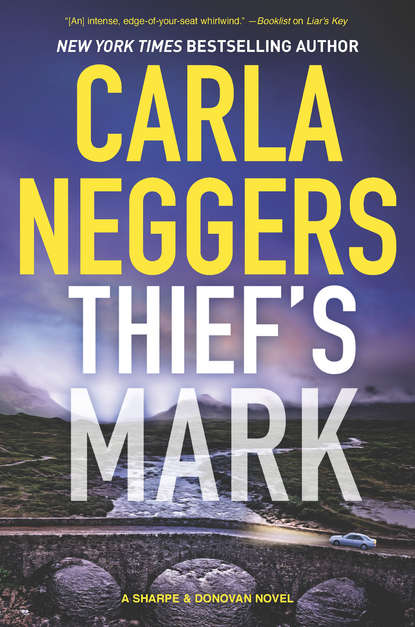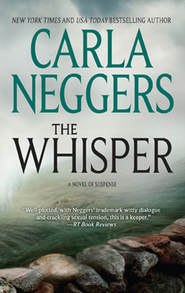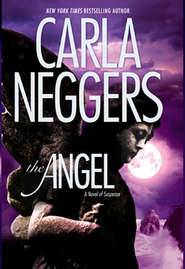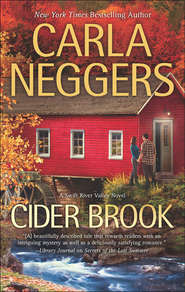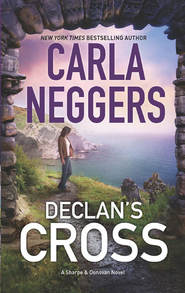По всем вопросам обращайтесь на: info@litportal.ru
(©) 2003-2024.
✖
Thief's Mark
Автор
Год написания книги
2019
Настройки чтения
Размер шрифта
Высота строк
Поля
She leaned into his embrace. “That we do. I haven’t heard from Oliver since he left us the champagne at Ashford Castle our first night here. Do you think the timing of the break-in with our arrival in Dublin is a coincidence?”
“I don’t think anything that involves Oliver York and your grandfather is a coincidence.”
They crossed a quiet street. “We can see Oliver while we’re in England,” Emma said.
“You can see Oliver.”
“You’d let me go on my own?”
Teasing time. As if Colin “let” her do anything. He tightened his hold on her, drew her closer. “I don’t know, I think I could get into a submissive Mrs. Donovan.”
She laughed. “Oh, you think so?”
His deep blue eyes sparked with humor, and something else. “We can find out tonight.”
They walked hand in hand past Merrion Square, one of Emma’s favorite spots in Dublin, with its black iron fencing, lush greenery and soothing Georgian ambience. She’d spent countless hours there during her months working shoulder-to-shoulder with her grandfather, learning from him, enjoying his company, his experience, his brilliance as a private art detective and consultant. Everything she’d gleaned she’d put to use in her work with the FBI. The quiet, pristine square had been a pleasant spot to consider her past and her future. Her past had been a stint in a Maine convent. Her future was here, now, with Colin.
Her grandfather had accepted her decision to leave Sharpe Fine Art Recovery, if not enthusiastically at least with his good wishes. “You’ll be Special Agent Emma Sharpe the next time I see you,” he’d said with a grimace. “I’ll never get used to it, but it’s what everything you’ve done to date has prepared you to be. Go catch bad guys, Emma. Stop them. Lock them up. Keep us safe.”
Colin tugged on her hand. “Lost in thought?” he asked.
She smiled. “Totally.”
He pulled her closer. “It’s a beautiful evening in Dublin.”
It was, indeed. The warm weather and the prolonged daylight of June had brought the crowds out to the streets. Shops, pubs and restaurants were bursting, and people were flowing into St. Stephen’s Green. Although tempted, they decided to skip a walk through the park and returned to the Shelbourne and their elegant room.
A plate of chocolate truffles and two glasses of whiskey were set out on a small table, with a note:
To Mr. and Mrs. Donovan,
Enjoy the last night of your honeymoon.
Love,
Granddad
Colin lifted a whiskey glass and handed it to Emma. “Your grandfather is impossible, but he does have his charms.”
“It was a spectacular ten days, wasn’t it?”
“Yes. Spectacular.”
She nodded to the note. “I like the sound of Mr. and Mrs. Donovan. I’ll have an easier time in Rock Point as a Donovan.”
“You think so?”
“Your brothers won’t think you’re manly if I go by Sharpe.”
“That’d ruin my reputation for sure.” He picked up the second glass. “I don’t care what you call yourself, you know.”
“I know. I’m learning to tease like a Donovan. I love being married to you whatever anyone calls me. We’ll be home soon enough. Right now, we’re on our honeymoon.”
His gaze settled on her. “Yes, we are.”
A warmth spread through her. She clinked her glass against his. “Sláinte.”
Colin smiled. “Sláinte,” he said, and he set his glass and then hers back on the table.
2 (#u951240e0-74d3-5ee9-b773-8a019319d286)
Near Stow-on-the-Wold, the Cotswolds, England
“Just because something is old doesn’t mean it’s an antique of any quality,” Oliver York said. “It could be rubbish.”
Martin Hambly withheld his irritation. Henrietta Balfour, a local garden designer, was either preoccupied with her bucket of loam or ignoring Oliver, or perhaps both. Martin had hired her but Oliver was paying her. They were gathered outside the potting shed, located in a small, centuries-old dovecote on the southern edge of the York farm. The farm itself was located on the outskirts of the tiniest of Cotswold villages, a short drive to the busy market town of Stow-on-the-Wold. Martin had expected Oliver to stay another few days in London, but he’d returned last night. He would have thought a lazy morning was in order, but now here Oliver was, offering input in matters in which he’d never displayed any interest prior to ten minutes ago. For reasons Martin couldn’t fathom, Oliver had decided to contribute his opinion of an old pot Henrietta had unearthed. She’d discovered it out back in a heap of discarded gardening materials, created when Oliver had converted part of the dovecote into a stone-cutting studio. At first, Martin had thought it just another of Oliver’s solitary hobbies. Not quite the case.
Martin had worked for the Yorks for decades. He’d promised Nicholas and Priscilla York on their deathbeds he would never abandon their orphaned grandson, no matter how frustrating, annoying and outrageous Oliver could be.
Some days that promise was easier to keep than others.
Today wasn’t one of those days.
Oliver had gone to London on his own last Friday and hadn’t required Martin’s assistance at the York home on St. James’s Park. That could mean he’d been on a clandestine mission for MI5 or he’d discovered more stolen art he needed to return to the rightful owners—or he’d simply had a stack of books he’d wanted to read without Martin hovering about. They never discussed Oliver’s decade as a brazen art thief or his current work with MI5. For that matter, his reading list was off-limits for discussion, too.
Old pots, however, he would apparently discuss.
“This pot belonged to your great-grandmother, Oliver,” Martin said, fingering the slightly chipped terra-cotta pot. “It has soul. That’s the point, not its monetary value.”
“If you insist.”
Oliver stood straight. He was in his late thirties and exceedingly fit, with wavy, tawny hair and the sort of looks that drew women to him, although he’d yet to marry or even have, as far as Martin knew, a long-term romantic relationship.
And Martin would know.
Oliver turned to their garden designer. “Henrietta?”
She raised her warm blue eyes to him. “Old rubbish with soul?”
Martin could have cheerfully dumped the pot on their heads. It was half-filled with soil—not the sterile kind from a bag, either. He’d personally dug loam from the hillside behind the dovecote. Henrietta had protested but he’d won that battle, if with the compromise that she could top off the pot with her preferred professional mix of soil.
Professional dirt. Martin had never heard of such a thing.
After years of neglecting the farm’s gardens and overall landscaping, Oliver had taken Martin by surprise when he’d suggested they hire a garden designer and even provided Henrietta’s name. She’d recently moved from London into a nearby cottage she’d inherited from Posey Balfour, her grandfather’s never-married only sister and long a fixture in the village. Martin didn’t like to think of himself as shallow, but he hadn’t paid much attention to Henrietta in years and noticed at their first meeting about the gardens that she bore little resemblance to plain, gangly Posey, who’d died last summer in her midnineties. Henrietta was attractive with her mop of reddish-brown hair, her warm blue eyes and her pleasing curves. In her midthirties, she had a penchant for long, flowered skirts that she wore with a faded denim jacket or a battered waxed-cotton jacket and sturdy walking shoes. When conditions called for them, which they often did, she would don olive-green Wellingtons. How she managed her work in a skirt was beyond Martin, but she did occasionally pull on baggy pants, which also looked fine on her.
Perhaps Henrietta’s presence explained Oliver’s sudden acquiescence to professional help with the gardens and his early return from London. They’d known each other since they were small children, but she’d worked in London until recently and he’d... Well, Oliver had a variety of ways he kept himself busy.
Henrietta’s extended visits to the Cotswolds had started when she was five or six, most often on her own. Her parents, born-and-bred Londoners, loathed Posey’s “chocolate box” village. They’d steal away on exotic holidays, leaving Henrietta to amuse herself by helping her great-aunt with her gardens. Although she’d had no children of her own, Posey had doted on Henrietta, the only other female Balfour.





